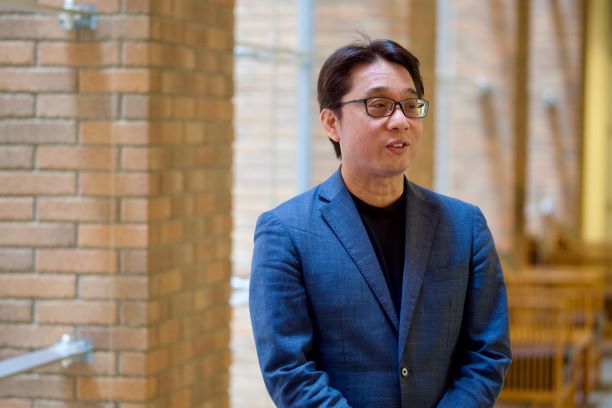RARA Fellow
Solving the “Resource Paradox Problem”



Solving the “Resource Paradox Problem”
SCROLL
FELLOW PROFILE
Serving as a Professor in the College of Science and Engineering, Ritsumeikan University since 2019.
Earned his Ph.D. in 2000 from the Tokyo Institute of Technology, Japan, in materials science. Began his academic career as an Assistant Professor at the Graduate School of Energy Science, Kyoto University, in the fields of materials science, environmental engineering, and industrial ecology.
In 2016, joined Ritsumeikan University, Japan, as an Associate Professor in similar fields. Also served as a Visiting Researcher at the Vienna University of Technology in 2009.
Addressing the Resource Paradox Problem to Construct a Sustainable Society
In the pursuit of decarbonization, we are encountering the “resource paradox problem” where green innovation paradoxically increases resource consumption. To address this issue, it is essential to develop a societal system that maximizes the value of each product from a lifecycle perspective. This research identifies products that cause this problem and proposes solutions through technology, societal systems, and policy packages. Additionally, by incorporating the concept of lifecycle traceability, we also aim to tackle issues such as supply chain risks.
When I began my career in research, the majority of researchers were dedicated to finding solutions to global warming—a focus which continues today. However, as I delved into life cycle thinking, it became clear to me that many technologies designed for decarbonization actually require a variety of resources. This realization led me to believe that addressing both decarbonization and resource depletion from a life cycle standpoint is crucial for envisioning a truly sustainable society.
As a RARA Fellow, I am poised to pioneer an interdisciplinary research domain that merges the natural and social sciences, showcasing Ritsumeikan University’s prowess on the global stage. The research I propose holds the promise of addressing critical issues such as environmental challenges, supply chain vulnerabilities, and life cycle traceability. Having already created a consortium through the Cross-ministerial Strategic Innovation Promotion Program (SIP), my goal is to produce high-impact scholarly articles, cultivate a hub of cross-disciplinary collaboration, and nurture a new generation of researchers.
In the first two years, we will focus on developing foundational methodologies for resolving the resource paradox, including the advancement of microwave metallurgy techniques, scrap sorting technology, and the update/maintenance of a Total Materials Requirement (TMR) database, along with policy design strategies. In years three and four, we will apply these methodologies to develop technologies that encourage consumer behavioral change. By the fifth year, our aim is to establish a comprehensive platform to address supply chain risks and to propose a holistic stakeholder engagement strategy, complemented by educational initiatives.
My research aspires to empower the next generations at universities and within society by nurturing interdisciplinary-educated leaders and professionals. I aim to elevate the resource paradox in the consciousness of policymakers both locally and globally. Through the application of LCA, I seek to enhance product transparency, thereby informing consumer choice and fostering corporate accountability. Additionally, I intend to spearhead global discussions on judicious resource management and equitable distribution, while also partnering with local communities to encourage sustainable lifestyles and business models. Ultimately, my goal is to contribute to a sustainable future through informed education, policy, and practice.
Partnerships:
I am convinced that forging alliances with educational institutions across various disciplines is a critical initial step in my research. Concurrently, it is imperative to cultivate partnerships with companies engaged in the creation of eco-friendly products, governmental bodies overseeing resource management policies, and NGOs/NPOs dedicated to safeguarding the global environment. My collaborative efforts extend beyond prominent organizations and local authorities to include vital interactions with smaller community entities. For instance, stakeholders involved in the sustainable stewardship of traditional Japanese agricultural landscapes (satoyama) landscapes are also considered key allies in my endeavor.
Research collaborations:
This research is inherently interdisciplinary and international, calling for a collaborative approach that leverages the distinct expertise of each participating institution. It is crucial to meticulously define the roles and responsibilities within the joint research framework to meet our collective objectives. Given the cross-cultural nature of our collaboration, fostering interactive communication and trust-building through the regular exchange of insights and challenges is paramount.



Latest Research Activity Report
-

Research Activity Report / Eiji Yamasue
Research activities of Professor Eiji Yamasue and his research team have been featured in the Nikkan Jidosha Shimbun
2025 / 02 / 18
VIEW DETAIL
-

Newsletter / Research Activity Report / Satoshi Konishi / Eiji Yamasue / Hisaaki Mihara / Takashi Minemoto / Shima Okada / Satoshi Soda
RARA Newsletter vol. 11 Report on “RARA Commons.” Comprehensive Discussion of Various Collaborations and Researcher Careers
2024 / 12 / 25
VIEW DETAIL
-

Research Activity Report / Eiji Yamasue
Professor Eiji Yamasue and his colleagues’ research results have been published in Resources, Conservation and Recycling
2024 / 06 / 07
VIEW DETAIL

